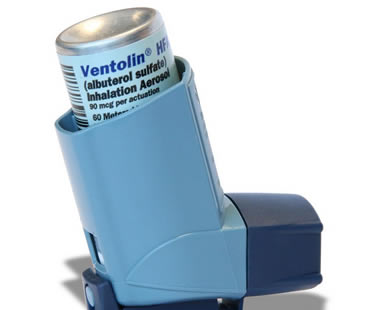
by Dr. Adkins | Jul 20, 2018 | Blog, Dental Topics 1, General Dentistry
If you have a dental emergency, for example a knocked out tooth or jaw injury, contact your dentist in McDonough right away for care. Quite often dental problems will develop out of office hours, so it’s a good idea to know how to treat them until you can visit your dentist. The following tips will help you take care of yourself or someone close:
- Bitten Cheeks, Lips or Gums. Gently rinse the affected area using cool water. Use light but firm pressure to apply a clean piece of gauze or washcloth to stop bleeding. An ice pack can help reduce swelling.
- Bleeding Gums. Bleeding gums are frequently caused by gum disease or through brushing your teeth too hard. Rinse your mouth with warm water and be sure to thoroughly brush and floss your teeth as this will help reduce infection and inflammation. Book an appointment with your family dentist in McDonough for proper diagnosis and treatment.
- Canker Sores. It can help to wash the area with warm salt water. Avoid spicy or very hot foods until the canker sore begins to heal. If it fails to heal after two weeks, contact your dentist for advice.
- Cracked or Broken Tooth. Carefully rinse your mouth with warm salt water. Book an appointment with your dentist to have the tooth mended, and bring any broken pieces of tooth with you to the dental office.
- Loose Baby Tooth. Don’t attempt to pull out the tooth yourself, but instead encourage the child to gently wiggle it from side to side until it eventually comes out on its own.
- Teething Problems. Use a chilled teething ring or a cold washcloth to help soothe your baby’s gums. Gently rubbing the gums can also relieve some of the pressure.
If you live in the McDonough area contact us today

by Dr. Adkins | Jul 13, 2018 | Blog, Dental Topics 1, General Dentistry
Most people are well aware certain foods are bad for teeth, but did you know some are very good for oral health? Listed below are just a few of the foods that could help your teeth and gums stay in tip top condition.
Salmon
Salmon is packed full of vitamin D which helps your body to absorb calcium from other foods, keeping your teeth and bones strong and healthy.
Onions
Onions might give you temporary bad breath, but they also contain sulfur that lowers the amount of decay causing bacteria in your mouth.
Strawberries
Strawberries are high in fiber and vitamins C, ensuring your gums are able to repair themselves and fight infection.
Pineapple
Pineapple is also high in vitamins C as well as an enzyme called Bromelain which helps promote healing. In addition pineapple increases saliva production, helping to wash away excess bacteria and sugars that could cause disease.
Quinoa
This fashionable grain is full of minerals including magnesium, manganese, phosphorus and calcium, all of which help strengthen your teeth.
Sesame Seeds
Sesame seeds contain plenty of calcium, helping to strengthen your teeth.
Shiitake Mushrooms
Shiitake mushrooms not only taste delicious, but also contain something called Lentinan which helps prevent the growth of bacteria in your mouth.
Wasabi
Wasabi is a type of Japanese horseradish that contains particular compounds that inhibit the growth of bacteria in your mouth.
Sea Salt
Sea salt contains numerous different minerals that help strengthen teeth.
Xylitol
Your dentist in Reno may recommend chewing xylitol gum after every meal as this ingredient helps inhibit bacterial growth, reducing the risk of gum disease and cavities.
Stevia
Ordinary sugar promotes bacterial growth, increasing acidity in the mouth. Stevia is a natural sweetener that doesn’t have this effect.
Of course a great diet is only half the story, and needs to be backed up with professional dental care from your dentist in Reno, and great daily dental care at home.
Visit our McDonough dental office for a dental cleaning.

by Dr. Adkins | Jun 8, 2018 | Blog, Dental Topics 2, General Dentistry
Severely damaged, injured or diseased teeth can lead to not only cosmetic problems with your smile, but also functional ones. Your dentist may recommend dental crowns or dental bridges to treat your dental issues.
Dental crowns are a restorative dental therapy that covers the affected tooth completely, serving as the new outer surface of the tooth. A dental crown maintains the natural roots of a tooth and can prevent extraction. A dental bridge fills the gap left by one or more missing teeth and is affixed to bordering teeth with an anchoring crown.
Both dental crowns and dental bridges are made from a variety of materials that can be designed to match the color of your surrounding natural teeth. As opposed to removable prosthodontics such as full or partial dentures, dental crowns and bridges are permanently bonded to existing teeth or dental implants, allowing them to function and appear as natural teeth.
Dental crowns and bridges have a number of advantages and benefits, such as:
- Dental crowns protect the natural tooth after a root canal therapy, helping to prevent bacteria re-infecting the tooth that could lead to extraction.
- Dental bridges restore gapped or missing teeth, providing support to the surrounding teeth, preventing them from shifting in to fill the empty space and affecting your speech, bite and smile.
- Your dentist can typically place dental crowns and bridges in as few as two appointments.
- Dental crowns and bridges are both long-lasting, durable therapies, designed to protect your natural tooth for years to come.
- Dental crowns prevent bone loss by preserving the natural tooth roots, thereby stimulating the jawbone, preventing resorption, or shrinkage, of the bone following extraction.
If you have questions about what a dental crown or bridge can do to improve the form and function of your smile, talk to your dental professional today. You can restore your healthy smile and preserve it for years to come with a dental crown or dental bridge treatment.
If you live in the McDonough area contact us today

by Dr. Adkins | Apr 2, 2018 | Blog, Dental Topics 1, General Dentistry
You may already know that consuming sugar brings health risks with it. It can contribute to obesity, diabetes, and heart disease, but it can also harm your teeth and gums. Even if you avoid desserts and sugary treats, you may be consuming more sugar than you realize. You should be aware that sugar is hidden in foods that you may not have considered.
Since the sweetened taste of sugar entices many people, manufacturers tend to add sugar to just about anything. Examples include crackers, condiments, salad dressing, peanut butter, yogurt, sauces, and protein bars. Manufacturers also list sugar on food labels under other names to trick people. Some alternate names for sugar are sucrose, dextrose, maltose, and molasses. Another hidden ingredient to avoid is high fructose corn syrup.
How can you avoid sugar if it’s lurking in the foods you enjoy? Here are some helpful hints in limiting your sugar intake:
- Eat whole food instead of processed food. Vegetables, fruits, and nuts are some other choices that will fill you up without the added sugar.
- Look for products that are sugarless or don’t have added sugars. Even foods labeled “low sugar” may contain more than you’d like.
- Drink sugarless beverages that won’t flood your mouth with sugar. Sodas, sweetened juices, and sweetened coffee provide lots of sugar and calories. Water is always an ideal choice to quench your thirst.
- Steer clear of artificial sweeteners, which don’t fill you up and leave you craving more sweets.
- Give yourself time to get used to having less sugar in your diet. Foods may taste less satisfying as you adjust, but you’ll get accustomed to the flavors that foods provide without the extra sweetness.
Schedule your appointment at our McDonough dental office

by Dr. Adkins | Feb 26, 2018 | Blog, Dental Topics 1, General Dentistry
About 20 million Americans have been diagnosed with asthma, a long-term lung disease that causes swelling and narrowing of the airways. The condition has been linked to oral health, with patients having increased risk for cavities, gum problems, and bad breath.
One of the main culprits negatively impacting an asthma patient’s oral health is the medication required to treat the condition. Some medicines, such as corticosteroids, decrease the flow of saliva. This leads to dry mouth, which in turn can increase cavities and bad breath. Dry mouth is worsened by the fact that many asthma patients breathe through their mouth. Inhaled steroids can also increase the risk of thrush, which is caused by an overgrowth of yeast in the mouth.
Here are some tips for keeping your mouth safe while still controlling your asthma:
- Make sure your dentist is aware of your condition, as well as all medications that you are taking.
- Rinse your mouth with water or a fluoride mouthwash after using your inhaler.
- Consider using a spacer device with your inhaler, which will spray the medication directly into your throat and avoid some of the direct risks to your mouth.
- Bring your inhaler with you to dentist appointments, both to show it to your dentist and to have your medication available in case you experience an asthma attack at the office.
- Ask your dentist if more frequent dental visits are recommended in your case.
- Inquire about adding fluoride supplements to your routine, especially in areas where the water is not fluoridated.
- Maintain good brushing and flossing habits.
If you need a dentist in McDonough contact us today







 770-957-5214
770-957-5214  E-Mail Us
E-Mail Us 
